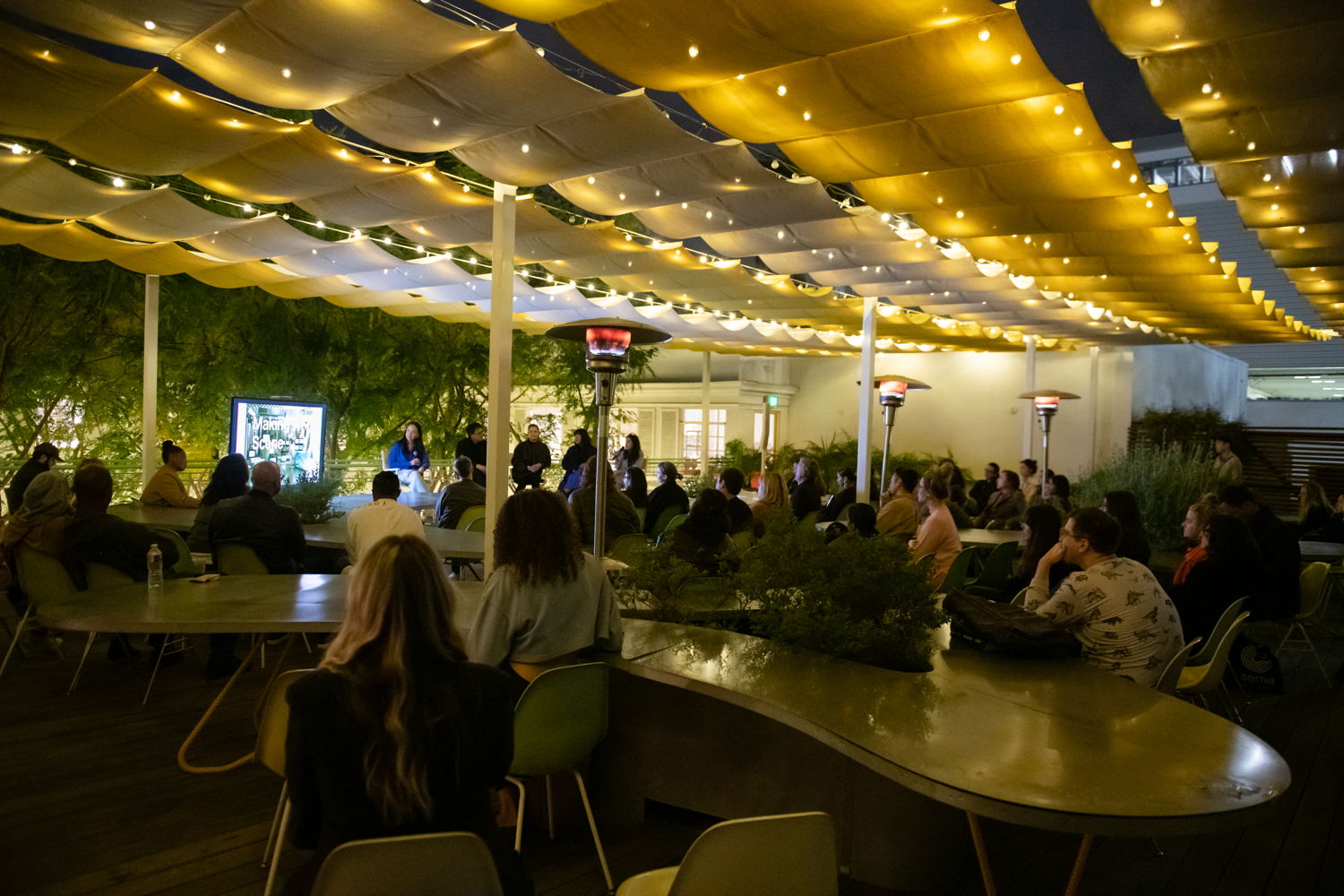February 2023

News
The Architecture of Art
On February 13th, 2023, we hosted a panel on design for art spaces at the beautiful Second Home Hollywood. We discussed experimentation in architecture; updating traditional institutions for access, inclusion and new ways of viewing art; the significance of labor, collaboration, and community in the context of cultural spaces; the role of architects in development; and lots more.
Grateful to our talented panelists, architect John K. Chan, founder and Design Director of Formation Association; designer and curator Kate Yeh Chiu, director of Materials & Applications and faculty at USC; architect and curator Priscilla Fraser, founder and principal of PFAAD and former Executive Director of the MAK Center for Art and Architecture; and architect Zeina Koreitem, founding partner (with John May) of MILLIØNS and design faculty at SCI-Arc. The talk was moderated by This by That co-founder Honora Shea.
Looking forward to expanding (and recording!) the conversation at the next one. Thanks to our partner, Second Home, and everyone who joined us.
Photos by Owen Kolasinski.
Press
Formation Association is ARCHITECT Magazine’s latest Next Progressive

Formation Association is profiled in ARCHITECT Magazine’s January/February 2023 print issue, as part of its "Next Progressives" series. The Los Angeles-based studio, led by John K Chan and Grace U Oh, share the firm’s philosophy, defining projects, ambitions and more. “We’re a firm founded by Asian Americans of two cultures: Chinese and Korean. Our leadership and many team members speak more than one language. We’re comfortable with a multilingual attitude in architecture—translating and interpreting linguistic nuances in our own studied and peculiar way while always searching for conceptual through lines that tie different approaches together." To read the full interview pick up a copy of ARCHITECT’s January/February 2023 print issue or click here.
Portrait of Formation Association founders John K. Chan and Grace U. Oh by Kelly Barrie.
CO Adaptive’s Mercury Store in Bloomberg's CityLab
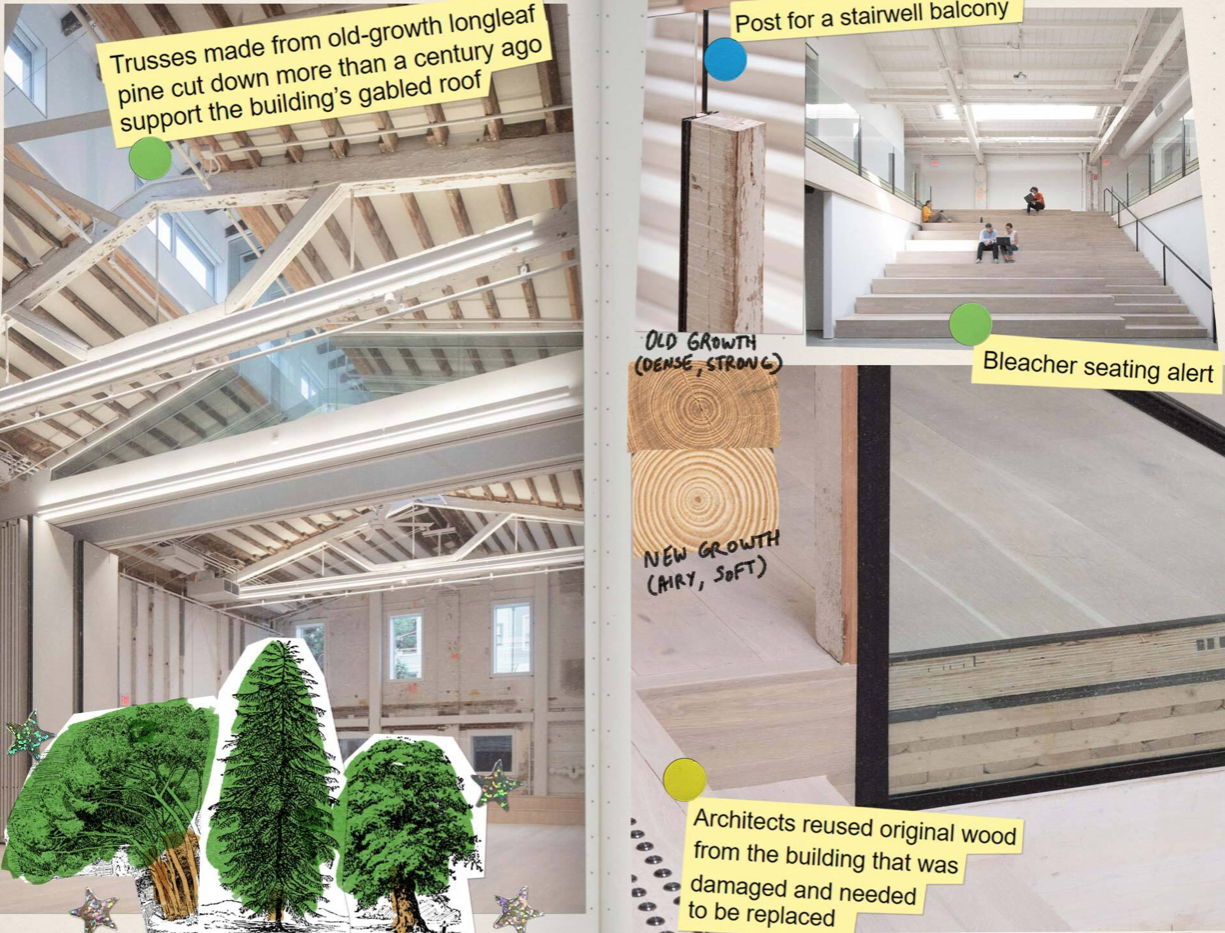
CO Adaptive's Timber Adaptive Reuse Theater, home to the Mercury Store, was recently featured in Bloomberg’s CityLab. The piece, written by Aaron Clark, incorporates before and after images to explore the differences in historic timber building and new construction, demonstrating how, “The Mercury Store offers a bridge between the two. Original pine trusses as long as school buses span the 16,000-square-foot building’s double-peaked roof, while a new floor in half the building that also acts as a structural slab is composed of engineered wood laminate.” The article also shines a light on the exterior insulation, applied to allow for interior exposure of existing brick walls, heavy timber trusses, and roof joists—all rich with decades of industrial patina.“The building is somewhat nondescript and not a big statement from the outside," says CO Adaptive cofounder Ruth Mandl. "It’s really when you enter it that there’s sort of this interior magic to it.” Click here to read the article.
Photos by Naho Kubota, Illustration by Stephanie Davidson.
CO Adaptive's Timber Adaptive Reuse Theater project is currently featured in Architecture Now: New York, New Publics, the inaugural installation of a new exhibition series at The Museum of Modern Art, on view through July 29, 2023.
Frederick Tang Architecture's State Street Townhouse Featured in Design Anthology
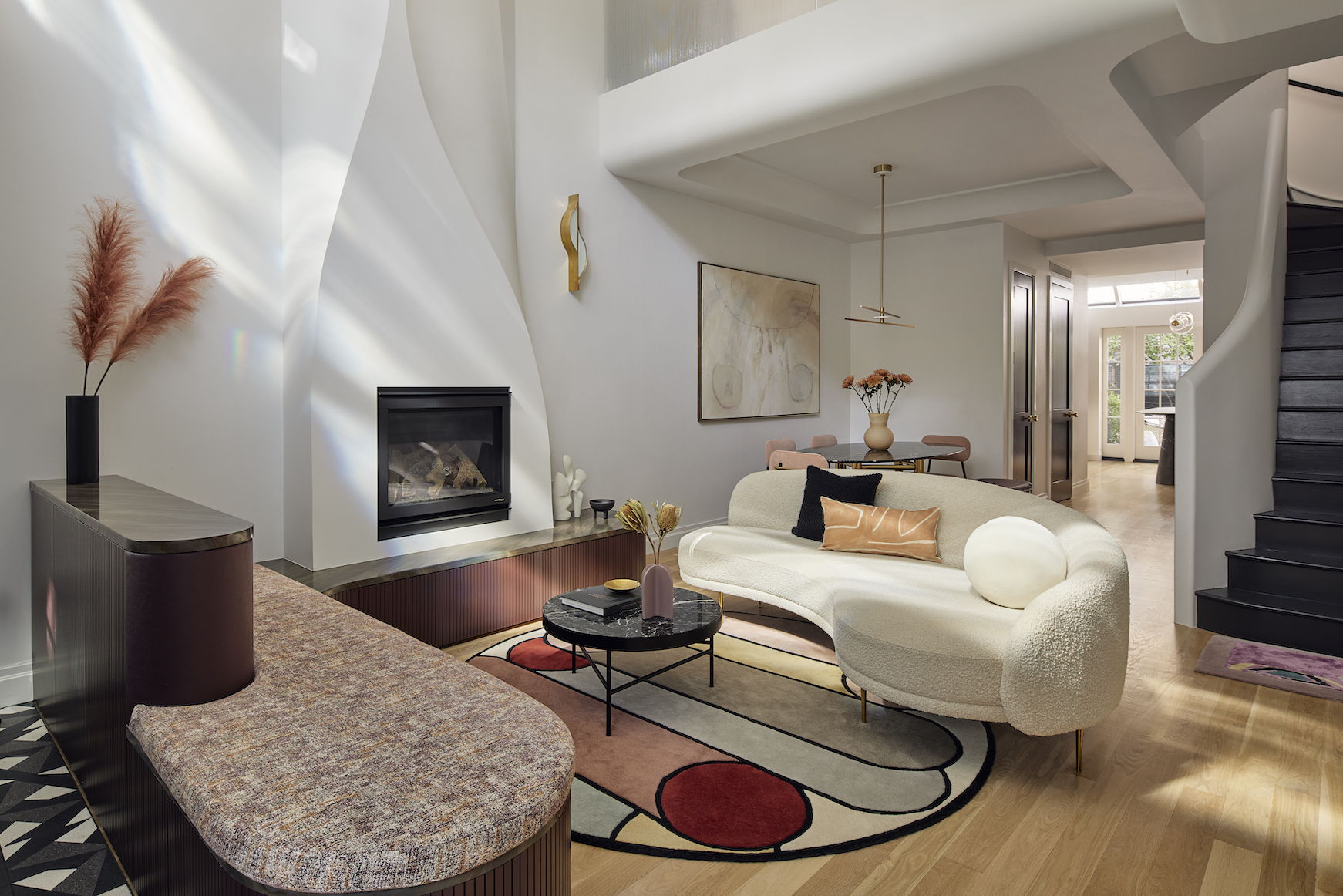
Frederick Tang Architecture’s principal Frederick Tang, and director of interiors, Barbara Reyes, talked to Design Anthology about their redesign of a neo-Georgian style townhouse in Boerum Hill, Brooklyn for a young family. Says Tang of the home’s dramatic double-height spaces, “These were real show-stopper moments, but we knew they had to be redesigned so that the scale wouldn’t overwhelm the space…..We looked to French sculptor Valentine Schlegel’s plaster fireplaces for inspiration for softening the entrance space and adjusting the proportion of the fireplace." says Tang. ” Click here to read more on how FTA transformed this cookie-cutter townhouse into an intimate and adaptable family home full of rich colors and sinuous details.
Photo by Gieves Anderson.
Soft-Firm Profiled in Metropolis
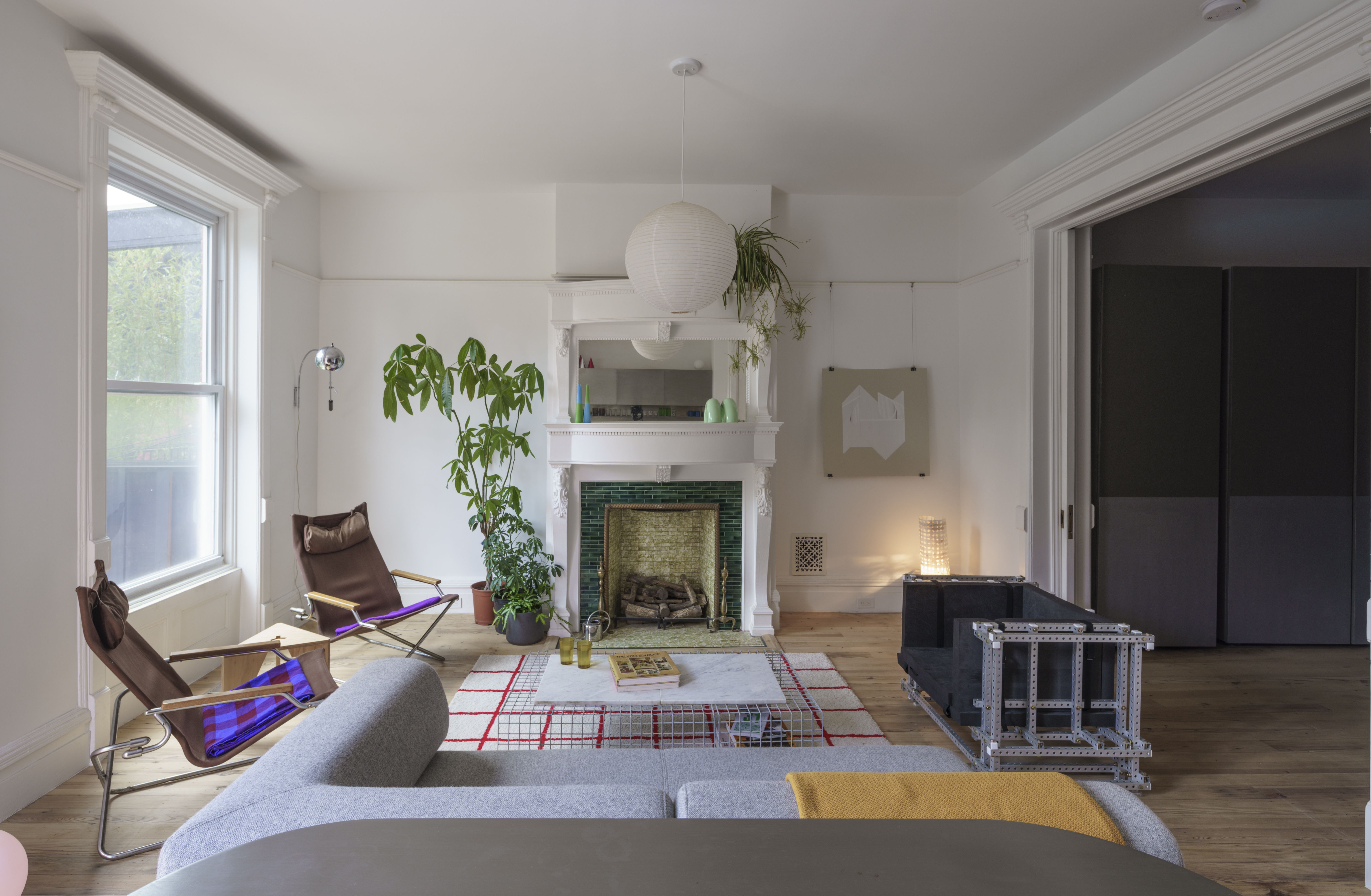
Soft-Firm’s “awareness that a project’s uses and users will change over time…is a thread running through the firm’s body of work and leads it to design with flexibility in mind, giving users the space to “self-determine” their built environment,” writes Michelle Duncan in Metropolis Magazine’s profile of the interdisciplinary design practice. Their “approach amounts to using design as a tool for activism,” says Duncan. Soft-Firm’s co-founder Lexi Tsien adds, “we’re really interested in the social aspect of how architecture can empower different communities.” Click here to read the full write up on how Soft-Firm founders Lexi Tsien and Talitha Liu “bring their sociocultural awareness to design projects in Brooklyn and beyond.”
Image: Generation House, photo by Michael Vahrenwald.
Alda Ly Architecture's Design for Lazy Sundaes Spotlit in Interior Design
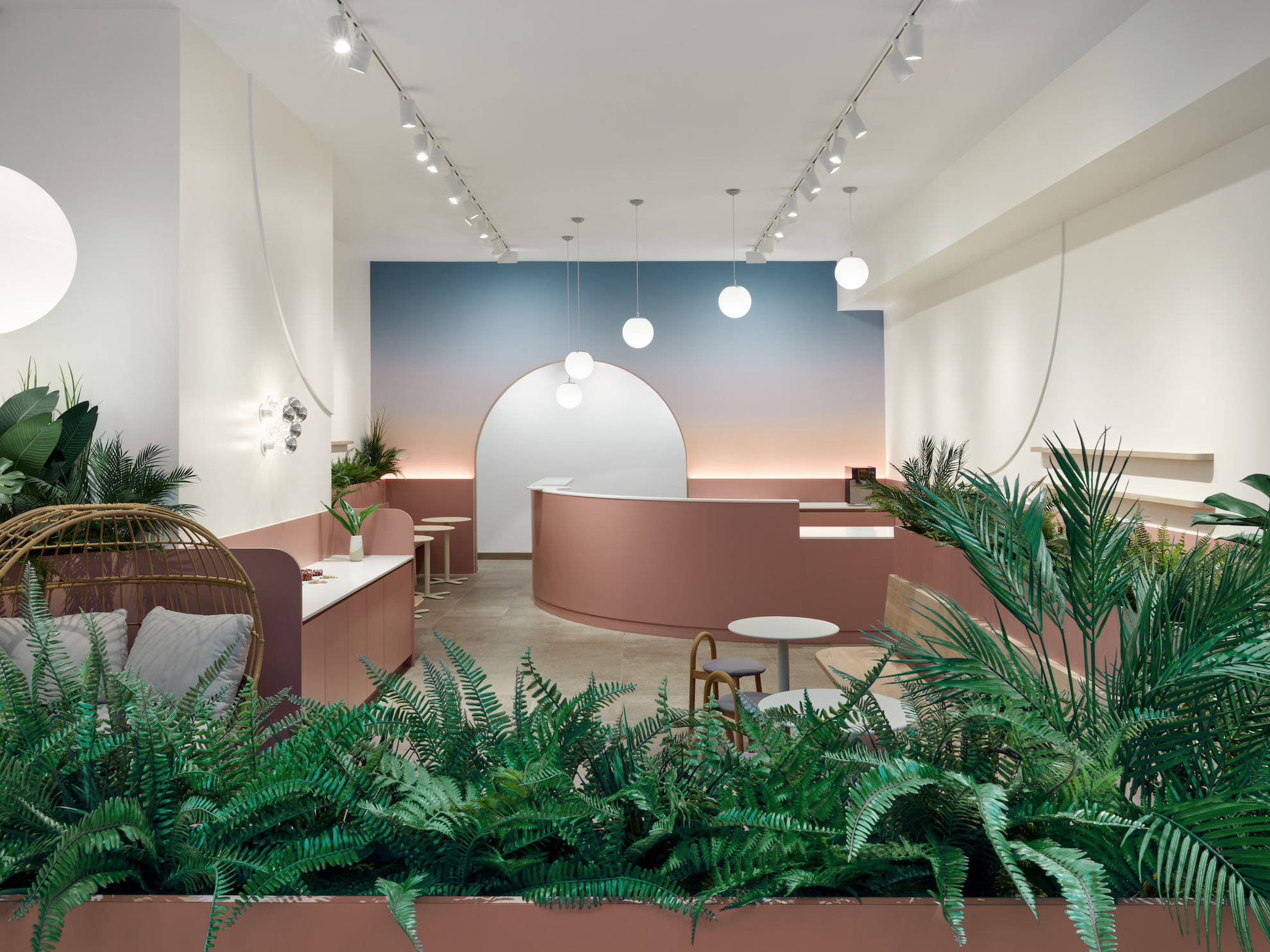
Alda Ly Architecture’s sunset-inspired design for Lazy Sundaes, a cafe that offers Korean bingsoo sundaes, a shaved ice treat, and bubble tea, is featured in Interior Design Magazine. ALA designed the popular cafe’s fourth location in Brooklyn, where “it’s always golden hour,” writes Carlene Olsen. Click here to read about how ALA transformed this space into a customer-friendly oasis full of warm tones and sinuous details.
Photo by Reid Rolls.
Architensions Interviewed in Koozarch on Transgressing Space
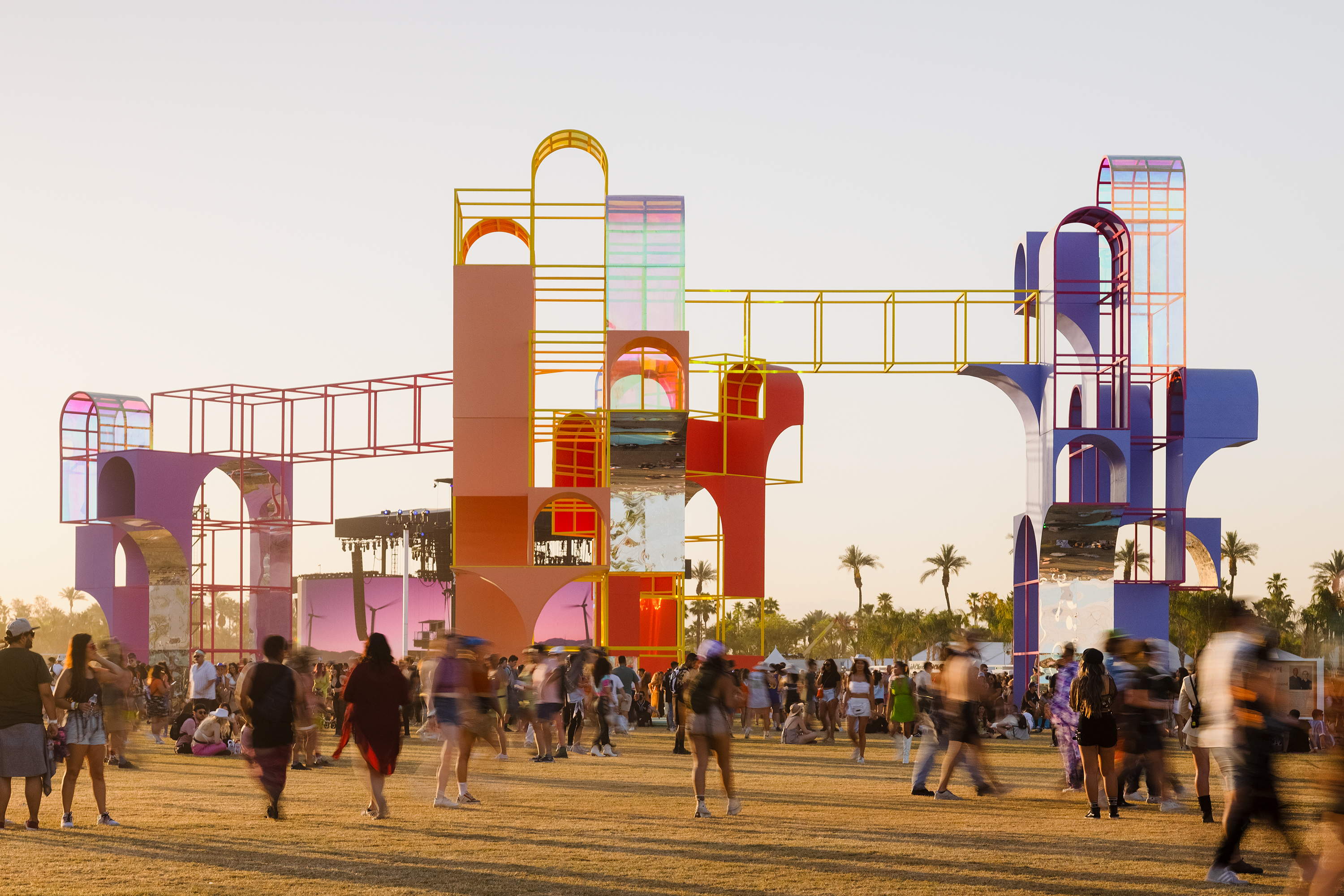.jpg)
Alessandro Orsini and Nick Roseboro, co-principals of Architensions, spoke to Valerio Franzone of Koozarch in an expansive interview on "Transgressing Space". Orsini and Roseboro talk about rewriting the practice of architecture so that it acknowledges its impact on displacement, colonization, and division, and so that it is equipped to tackle issues of race, justice, housing, and sustainability. Says Orsini, “Today, our profession is shaped around the commodification of real estate. Architects alone don't have enough agency to challenge capitalism. In our practice, we see architecture as a way to rethink equality and the distribution of the space needed to protect our biological life.” Both Roseboro and Orsini talk about embedding pedagogy in design, and finding agency in drawing and creative expression, as tools for progress. Read the full interview here.
Image: The Playground by Architensions (Coachella Music and Arts Festival 2022), Photo by Lance Gerber
Don't Miss:
Michael K. Chen shares his thoughts on generative AI for design with Elle Decor; Worrell Yeung's Lake House in Connecticut is featured in Dezeen; SAW's Breezy Landscape in California is featured in Living, Etc.
For more, please subscribe to our newsletters, visit our website, and follow us on Instagram.

